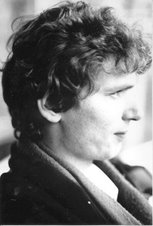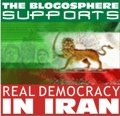 BBC journalist Alan Johnston has told of his fear of having his throat cut in a Jihadi-style video execution, in a revealing account of his nearly four months held by an extremist group in Gaza. I can't explain How happy I am that Alan Johnston is free finally. Journalist that trying to do his job and captured. Journalists who are working in Middle East and Africa really works under hard circumstances.
BBC journalist Alan Johnston has told of his fear of having his throat cut in a Jihadi-style video execution, in a revealing account of his nearly four months held by an extremist group in Gaza. I can't explain How happy I am that Alan Johnston is free finally. Journalist that trying to do his job and captured. Journalists who are working in Middle East and Africa really works under hard circumstances. Johnston, who was the only Western journalist still based permanently in Gaza, was taken captive by Palestinian extremists, the Army of Islam, on March 12 as he returned to his flat. He was released on July 4. The 45-year-old told how he was kept in a room with “a narrow, sagging bed and two plastic chairs” and said that he had been stripped of his watch, and could only tell the time by the sun’s movements and sound of calls to prayer.
Nevertheless, it set his mind racing. “I was sure that if I was to be put to death, the act would be video-taped in the style of Jihadi executions in Iraq ... I imagined being put into that red suit that they would make me wear for any video work. I imagined perhaps one of them in a hood, imagined one of them stepping up, imagined having a knee in my back or the back of my neck and then my throat being cut.”Johnston said that one of the few bright spots was the fact that his guards allowed him a radio, with which he became aware of the BBC’s campaign to win his freedom, which he described as “an enormous psychological boost.”
Eventually, the politics of Gaza worked in Johnston’s favour, as the hard line Palestinian group Hamas seized control of the territory and negotiated his release. Since returning to Britain, Johnston said he dreams “sometimes that I’m in captivity again, and I cannot tell you how good it is to wake, and gradually realise that, actually, I’m free.
“The kidnap’s legacy is not all bad ... it was a kind of dark education,” he said. “I lived through things which before I would have struggled to imagine ... I’ve gained too a deeper sense of the value of freedom ... it can still seem faintly magical to do the simplest things - like walk down a street in the sunshine or sit in a cafe with a newspaper.”





